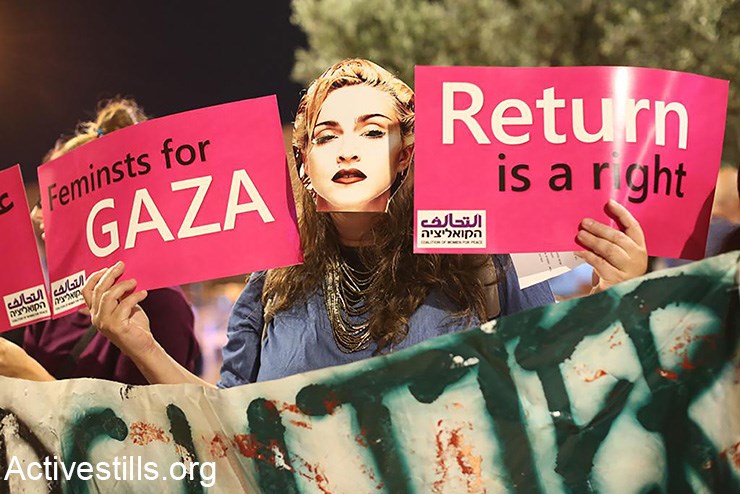-
South Hebron Hills: Settlers wielding sticks launch night attack on Palestinian home
June 17, 2019 | International Solidarity Movement | South Hebron Hills, occupied Palestine Settlers bearing sticks from the notorious Havat Maon illegal outpost tried to attack a Palestinian home two nights ago in the village of At-Tuwani, South Hebron Hills – the latest in a stream of attacks against the same home. The Zionist attackers […]
-
Protesters break through replica of Apartheid Wall in Bethlehem symbolic run
Protesters gather for symbolic marathon near Apartheid Wall in Bethlehem June 19 2019 | International Solidarity Movement | Bethlehem, occupied Palestine Hundreds of people gathered in cities across the Palestinian Territories and England on Sunday June 15, to participate in a symbolic marathon in honour of the international right to freedom of movement. The project, called […]
-
ISM Week of Action Against Eurovision
May 2019 | International Solidarity Movement| occupied Palestine ISM’s week of action against the Eurovision in Tel Aviv In coordination with the Palestinian Boycott National Committee (BNC) and The Palestinian campaign for the Academic and Cultural Boycott of Israel (PACBI) and in collaboration with Israeli anti zionist groups has been a huge success! From before […]
Action Alert An Nabi Saleh Apartheid Wall Arrests BDS Bethlehem Bil'in Cast Lead Demonstration Denial of Entry Ethnic Cleansing Farmers Gaza Global Actions Hebron House Demolition International law Israeli Army Jerusalem Live Ammunition Nablus Ni'lin Prisoner Ramallah Rubber-coated steel bullets Settlement Settlers Settler violence Tear-Gas Canister Video

